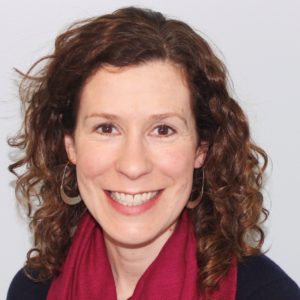TRANSFORM- Podcast: Promoting Resilience
About the Podcast
Child well-being and abuse prevention is paramount to creating a safe and healthy community for everyone. TRANSFORM (Translational Research that Adapts New Science FOR Maltreatment) is a national resource center that conducts research on child abuse and neglect (CAN), disseminates discoveries, and builds on state-of-the-art research and practices to foster the next generation of interdisciplinary professionals committed to preventing and addressing CAN. In our podcast, experts and practitioners who work in the child maltreatment field will discuss a wide range of topics, including advice for parents and caregivers to protect children, prevent abuse, utilize findings from current studies, and intervene to improve children’s lives.
Podcast Home Page
Episodes
SEASON 3:
Two-Part Episode with Dr. Liz Handley
Director of Research, Mt. Hope Family Center
Associate Professor, Department of Psychology, University of Rochester
Finding Your Path: Insight into Professional Growth from a Clinical Psychologist
Host, Catherine Cerulli, JD, PhD, is joined by the Mt. Hope Family Center Director of Research and Associate Professor in the Department of Psychology at the University of Rochester, Liz Handley, PhD. Part one of this two-part episode explores Dr. Handley’s job evolution in the child abuse and neglect field. She shares that her interest in developmental psychopathology led her to Mt. Hope Family Center, one of the birth places of developmental psychopathology, as a research assistant after graduating college. This experience cemented Dr. Handley’s interest and thus her path towards her current role began. As she brings us along her journey, Dr. Handley explains the interconnectedness of the field, and how her mentors played a large role in guiding her path of growth. She was able to explore various areas of the child maltreatment field, in particular the impact of parent substance use on child development. This sparked an interest in the variety of risk factors that can impact child development. During her clinical internship at the University of Rochester Medical Center, Dr. Handley reconnected with the Mt. Hope Family Center, which ultimately led to her near current 12-year tenure at Mt. Hope. Dr. Handley’s experiences with her own mentors helped her develop mentorship skills. She notes, it takes a team of mentors, not just one, and that mentorship goes on long past graduation. Each of her mentors encouraged her in different ways – and she pays it forward by mentoring students and staff in her current work. Additionally, Dr. Handley shares the importance of collaboration and transdisciplinary teams to aid in professional growth and success. To close, Dr. Handley shares her tips and tricks for how she manages her time wearing many hats and while she herself continues to grow.
Supporting the Next Generation: Tips and Tricks for Success in the Field of Developmental Psychopathology
For part two, host Catherine Cerulli, JD, PhD is joined again by Liz Handley, PhD, the Director of Research at Mt. Hope Family Center and Associate Professor in the Department of Psychology at the University of Rochester to discuss the tips and tricks of excelling as a postdoctoral associate or recently completed post-doc in the field of psychology. Dr. Handley underscores that the first step for early-career professionals in the field is to define where you want to be – whether that be research, clinical work, or a combination of both. Take inventory of who has a job that you are interested in and seek mentorship and guidance from those who have experience where you hope grow. She notes, there is no one right way to get to where you want to go. The TRANSFORM Research Center has a rich data archive that Dr. Handley helps to maintain and support, she explains how using secondary analysis of data can lead to big impacts on the field. Collaborating with mentors and peers on secondary analysis is important, and having a foundational understanding of the literature surrounding the data is of utmost importance. She shares that understanding the theoretical underpinnings of the data will help with successful secondary analysis. Recognizing what we already know, where the gaps in the findings are, and understanding the study design and sample will lead to better analysis. Dr. Handley suggests early-career scholars seek pilot funding as a steppingstone to applying for federal grants. Kate offers various book recommendations that aim to grow ones writing skills. The episode concludes with Dr. Handley’s insight into finding the right mentor.
Meeting Kids Where They Are: Addressing Child Abuse and Neglect with Technology
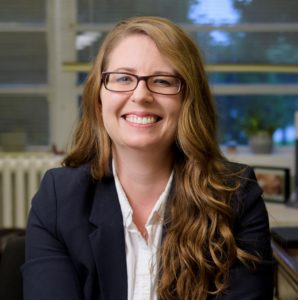
Dr. Laura Schwab-Reese, Assistant Professor of Public Health at Purdue University, joins host Dr. Kate Cerulli, professor of Psychiatry at the University of Rochester, and Veronica Leva, Assistant Director of Community Engagement for the TRANSFORM Research Center, to discuss the National Child Abuse Hotline, Child Help, and provide updates on her work since joining us in Season One of the podcast. Laura shares information about the services that the National Child Abuse Hotline offers, which includes text, chat, and phone call options for everyone from mandatory reporters unsure of how to handle a situation, to the children who are experiencing abuse and neglect themselves. She discusses how meeting kids where they are through the use of technology is so important in addressing challenging topics such as child abuse and neglect. Additionally, Laura explores what the barriers and facilitators are in creating a transdisciplinary team, as well as how she addresses the vicarious trauma that impacts teams who are doing this important work.
Dr. Laura Schwab-Reese
Assistant Professor of Public Health
Purdue University
Understanding The Intersection of Human Trafficking and Child Abuse and Neglect
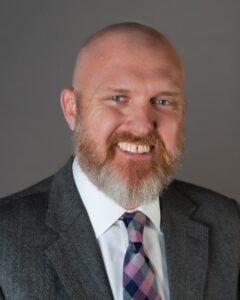
Host, Dr. Catherine Cerulli (Kate), is joined by her guest, Chad Frymire, the Director of Public Policy at Court Appointed Special Advocates (CASA) in Dallas, Texas and the Board President of the North Texas Coalition Against Human Trafficking. They discuss Chad’s work within the foster care and child welfare systems, child abuse and neglect, and how human trafficking crosses into these areas. Chad’s unique experiences led him to do meaningful work in the foster care system and also address how human trafficking intersects with child abuse and neglect. Through his work, Chad and his team have created trainings in human trafficking prevention to educate others as human trafficking is a large domestic problem and can happen to anyone, anywhere. It is critical for advocates to have the knowledge and resources to continue serving children who are at risk. Chad and Kate also explore how they address vicarious trauma and work to mitigate burnout, so they can continue to serve children in need of support.
Chad Frymire
Director of Public Policy
Dallas CASA (Court Appointed Special Advocates)
Understanding Perinatal Child Parent Psychotherapy: Taking a Culturally Informed Approach to Implementation
 Host, Dr. Catherine Cerulli, a professor of Psychiatry at the University of Rochester, is joined by her guest, Donna Walck, PhD, a therapist at Mt. Hope Family Center where she has practiced for 15+ years. Dr. Walck shares her expertise using Perinatal Child Parent Psychotherapy (P-CPP), an evidence-based trauma-informed therapeutic model for children ages birth to five years and their parents/caregivers. By exploring P-CPP and how it has been integrated into Project PROMISE, part of our TRANSFORM Research Center, Drs. Cerulli and Walck discuss the goals and delivery methods for administering the model.
Host, Dr. Catherine Cerulli, a professor of Psychiatry at the University of Rochester, is joined by her guest, Donna Walck, PhD, a therapist at Mt. Hope Family Center where she has practiced for 15+ years. Dr. Walck shares her expertise using Perinatal Child Parent Psychotherapy (P-CPP), an evidence-based trauma-informed therapeutic model for children ages birth to five years and their parents/caregivers. By exploring P-CPP and how it has been integrated into Project PROMISE, part of our TRANSFORM Research Center, Drs. Cerulli and Walck discuss the goals and delivery methods for administering the model.
Dr. Donna Walck
Therapist
Mt. Hope Family Center
SEASON 2:
Reimagining the Child Welfare System: Encouraging Families to Thrive
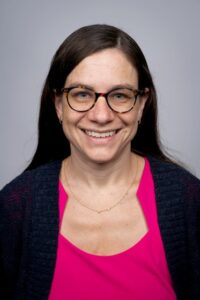
Host, Dr. Catherine Cerulli, a professor of Psychiatry at the University of Rochester, is joined by her guest, Mical Raz, MD, PhD, MSHP, the Charles E. and Dale L. Phelps Professor in Public Policy and Health at the University of Rochester, where she also works as an internal medicine physician at Strong Memorial Hospital in Rochester, NY. Dr. Raz explores themes of Poor Parenting vs. Poor Parents, mandatory reporting, Child Protective Services being used as a surveillance tool rather than a support tool, and how we can reframe and reimagine these systems.
Dr. Mical Raz
Charles E. and Dale L. Phelps Professor in Public Policy and Health
University of Rochester
Using Evidence Based Research to Reduce Teen Pregnancy
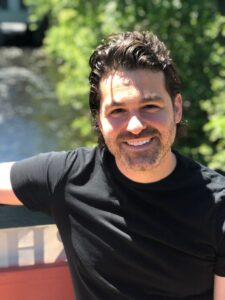
Host, Dr. Catherine Cerulli, a Psychiatry professor at the University of Rochester, is joined by her guest, Justin Russotti, Ph.D., a licensed clinical social worker and child maltreatment researcher. Dr. Russotti’s research focuses on the intersection of development and mental health specific to teen pregnancy. Child maltreatment is the strongest predictor of teen pregnancy and survivors are twice as likely to experience adolescent childbirth as opposed to those who do not experience childhood abuse and neglect. Dr. Russotti discusses his research with the Mt. Hope Family Center. He found that adolescent substance use behavior and pregnancy desire are the strongest indicators in determining a survivor’s risk for adolescent pregnancy. Focusing on these risk factors in maltreated adolescents can help reduce teen pregnancy occurrence.
Dr. Justin Russotti
Research Faculty
Mt. Hope Family Center
The Impact of Violence on Cancer Risk Factors for Marginalized Populations
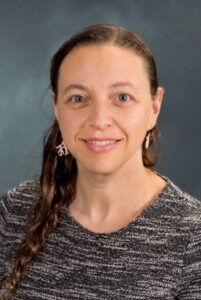
Host, Dr. Catherine Cerulli, a professor of Psychiatry at the University of Rochester, is joined by her guests, Ash B. Alpert, MD, MFA, a Hematologist and Medical Oncologist and an AHRQ T32 Post-Doctoral Fellow in Health Services Research at the Brown University School of Public Health and Sabrina Jamileh Sayegh, a queer and nonbinary third-year medical student at the University of Rochester School of Medicine and Dentistry. Dr. Alpert and Sabrina share insights regarding their research to understand and address cancer risk factors as a result of violence for multiply marginalized populations. They explore the mechanisms by which violence plays a role in social determinants of health and how violence can contribute to cancer and/or cancer risk factors.
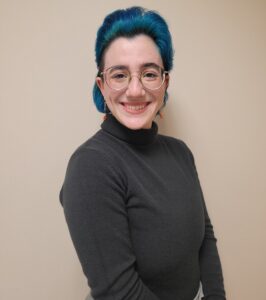 Dr. Alpert and Sabrina discuss exploring strategies such as ensuring adequate training is provided to clinicians caring for transgender people, implementing screening questions related to violence to be asked to all patients, and on a structural level, considering the ways that legislation might facilitate or diminish violence against transgender people. Dr. Alpert and Sabrina are dedicated to better serving transgender patients as well as other multiply marginalized populations.
Dr. Alpert and Sabrina discuss exploring strategies such as ensuring adequate training is provided to clinicians caring for transgender people, implementing screening questions related to violence to be asked to all patients, and on a structural level, considering the ways that legislation might facilitate or diminish violence against transgender people. Dr. Alpert and Sabrina are dedicated to better serving transgender patients as well as other multiply marginalized populations.
Dr. Ash Alpert
Hematologist, Medical Oncologist, AHRQ T32 Post-Doctoral Fellow
Brown University School of Public Health
Sabrina Jamileh Sayegh
Medical Student
University of Rochester School of Medicine and Dentistry
“You can’t take away the hurt, but we can minimize the damage”: Using Trauma Informed Care in Law Enforcement
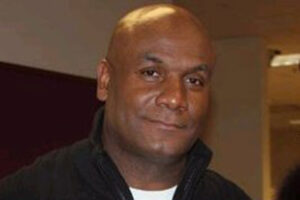
Host, Dr. Catherine Cerulli, a professor of Psychiatry at the University of Rochester, is joined by her guest, Moses Robinson. Moses has been a police officer with the Rochester, NY City Police Department since 1985, was a school resource officer for 21 years, and is currently a community liaison officer. His time on the force has taught him the value of forming relationships with people including children in schools, victims of violence, and offenders, some who have been victimized themselves.
Moses Robinson
Community Liaison Officer
Rochester Police Department
Empowering People Living with Fetal Alcohol Spectrum Disorder
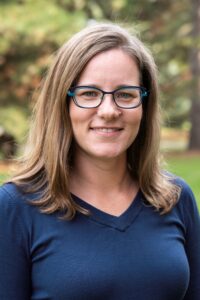
Host, Dr. Catherine Cerulli, is joined by her guest, Christie Petrenko, Ph.D., a clinical psychologist and Fetal Alcohol Spectrum Disorder (FASD) researcher. FASD represents a range of conditions associated with prenatal alcohol exposure. Studies have documented that in the US 2-5% of the population have FASD, or one in 20, and as many as 80-90% of people go undiagnosed or misdiagnosed. This impacts their lives in challenging ways including growth delays, learning and behavioral problems, and struggling with ADHD, anxiety, or depression.
Dr. Christie Petrenko
Research Associate Professor
Mt. Hope Family Center
Supporting Child Protective Services Through Medical Consultation Services
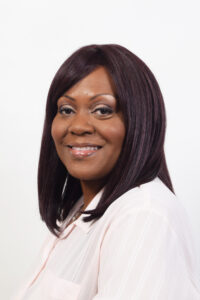 Host, Dr. Catherine Cerulli is joined by her guest, Nila Bragg, MSN, CPNP, a certified pediatric nurse practitioner and a Medical Consultant for the New York City Administration for Children’s Services. Nila provides consultation to child protective specialists in New York City who have clients with complex medical histories. As part of her role, Nila helps the child protective specialists connect these children and their families with services that support caregivers as they manage their child’s medical needs. Nila’s key message is that educating families and connecting them to resources is paramount to not only improve children’s health, but connections also support the overall well-being of children and their families.
Host, Dr. Catherine Cerulli is joined by her guest, Nila Bragg, MSN, CPNP, a certified pediatric nurse practitioner and a Medical Consultant for the New York City Administration for Children’s Services. Nila provides consultation to child protective specialists in New York City who have clients with complex medical histories. As part of her role, Nila helps the child protective specialists connect these children and their families with services that support caregivers as they manage their child’s medical needs. Nila’s key message is that educating families and connecting them to resources is paramount to not only improve children’s health, but connections also support the overall well-being of children and their families.
Nila Bragg
Medical Consultant
New York City Administration for Children’s Services (ACS)
SEASON 1:
Beyond Crisis Care: Supporting Youth and Helping them Thrive
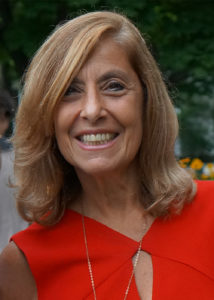 Host, Dr. Catherine Cerulli, a professor of Psychiatry at the University of Rochester, is joined by her guest, Elaine Spaull, Executive Director of The Center for Youth in Rochester, New York, to discuss the Center’s work as they care for youth and families. Center staff supports clients in troubled situations due to issues such as abuse, neglect, and homelessness, and aids them in repairing their lives by building trust. Often, the result is long lasting relationships with staff and leadership. The Center offers emergency babysitting service for parents and caregivers through their Crisis Nursery, short-term housing for youth 12 years and older who are in unsafe living situations, and transitional housing for older youth who can live independently. Highlighted are real life stories of people who have faced trauma that led them to seek support from the Center. Also discussed throughout the episode is how trauma and neglect in childhood can affect people into adulthood.
Host, Dr. Catherine Cerulli, a professor of Psychiatry at the University of Rochester, is joined by her guest, Elaine Spaull, Executive Director of The Center for Youth in Rochester, New York, to discuss the Center’s work as they care for youth and families. Center staff supports clients in troubled situations due to issues such as abuse, neglect, and homelessness, and aids them in repairing their lives by building trust. Often, the result is long lasting relationships with staff and leadership. The Center offers emergency babysitting service for parents and caregivers through their Crisis Nursery, short-term housing for youth 12 years and older who are in unsafe living situations, and transitional housing for older youth who can live independently. Highlighted are real life stories of people who have faced trauma that led them to seek support from the Center. Also discussed throughout the episode is how trauma and neglect in childhood can affect people into adulthood.
Elaine Spaull
Executive Director
The Center for Youth
Childcare in the Court System and a Life-Long Passion for Foster Care
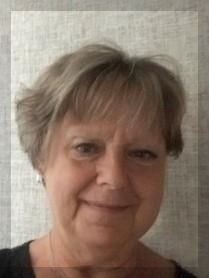 Host, Dr. Catherine Cerulli, a professor of Psychiatry at the University of Rochester, is joined by her guest, Eileen Whitney, to discuss how children and families are supported in a court based daycare program and the barriers they face. Speaking from her own experience as the director of the Monroe County Family Court Children’s Center at the Hall of Justice in Rochester, NY and as a foster mom to over 45 children throughout the years, eight of which she adopted, Eileen speaks about the work the Children’s Center is conducting to help at-risk kids and their families who are involved in the court system. The Center provides childcare to parents and guardians when they have court dates so they are able to attend proceedings and serves as a connection point for families to find medical and human services they need. Eileen also discusses her life-long passion of being a foster mom, how foster care benefits children, and the joy it brings. Eileen’s overarching message is that parents love and want to care for their children, but poverty and coping mechanisms often times get in the way of them being able to fully take care of their children.
Host, Dr. Catherine Cerulli, a professor of Psychiatry at the University of Rochester, is joined by her guest, Eileen Whitney, to discuss how children and families are supported in a court based daycare program and the barriers they face. Speaking from her own experience as the director of the Monroe County Family Court Children’s Center at the Hall of Justice in Rochester, NY and as a foster mom to over 45 children throughout the years, eight of which she adopted, Eileen speaks about the work the Children’s Center is conducting to help at-risk kids and their families who are involved in the court system. The Center provides childcare to parents and guardians when they have court dates so they are able to attend proceedings and serves as a connection point for families to find medical and human services they need. Eileen also discusses her life-long passion of being a foster mom, how foster care benefits children, and the joy it brings. Eileen’s overarching message is that parents love and want to care for their children, but poverty and coping mechanisms often times get in the way of them being able to fully take care of their children.
Eileen Whitney
Director of the Family Court Children’s Center
Monroe County (NY) Hall of Justice
Anonymity Through Technology: Empowering Kids to Reach Out About Abuse
 Host, Dr. Catherine Cerulli, a professor of Psychiatry at the University of Rochester, is joined by her guest, Dr. Laura Schwab Reese, to discuss national talk, text, and chat lines that respond to child abuse. Speaking to the need for translational science to prevent abuse, Dr. Schwab Reese delves into the importance of these technologies as they can directly respond to children using technologies children use every day. The anonymity can empower them to reach out about their abuse. Through various analyses, Dr. Schwab Reese has identified ways to improve how counselors relate to kids when using these services. These techniques can create greater trust between both parties and help build autonomy so kids feel confident to participate in decision making. A discussion of mandatory reporting and ways to best support children’s understanding of the process is also included in this conversation. Dr. Schwab Reese is an Assistant Professor of Public Health at Purdue University. Her research focuses on how young people use social media and other technology to share, process, and seek help related to child abuse and neglect as well as creating practice models that guide professionals to converse more effectively with victims through these networks.
Host, Dr. Catherine Cerulli, a professor of Psychiatry at the University of Rochester, is joined by her guest, Dr. Laura Schwab Reese, to discuss national talk, text, and chat lines that respond to child abuse. Speaking to the need for translational science to prevent abuse, Dr. Schwab Reese delves into the importance of these technologies as they can directly respond to children using technologies children use every day. The anonymity can empower them to reach out about their abuse. Through various analyses, Dr. Schwab Reese has identified ways to improve how counselors relate to kids when using these services. These techniques can create greater trust between both parties and help build autonomy so kids feel confident to participate in decision making. A discussion of mandatory reporting and ways to best support children’s understanding of the process is also included in this conversation. Dr. Schwab Reese is an Assistant Professor of Public Health at Purdue University. Her research focuses on how young people use social media and other technology to share, process, and seek help related to child abuse and neglect as well as creating practice models that guide professionals to converse more effectively with victims through these networks.
Dr. Laura Schwab Reese
Assistant Professor of Public Health
Purdue University
Support Over Silence
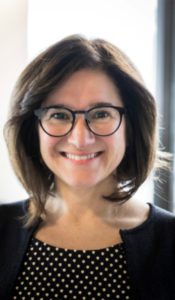 Host, Dr. Catherine Cerulli, a professor of Psychiatry at the University of Rochester, is joined by her guest, Dr. Nancy Weaver, to discuss how we can apply communication sciences, analytics and public health principles to promote healthy and positive parenting to reduce the prevalence of childhood abuse and neglect. This podcast will inform us on how to develop our own resiliency to respond to this crisis by learning how to be a bystander through a novel intervention program, Support over Silence for KIDS. Dr. Weaver created the program to educate community member’s tangible skills to listen empathetically and non-judgmentally to parents and caregivers in situations where tensions rise to help deescalate what’s happening in the moment. Dr. Weaver has a Ph.D. in Health Behavior and Health Education and an M.P.H. in Biostatistics from the University of North Carolina at Chapel Hill, as well as a B.S. in Mathematics and Statistics from the James Madison University.
Host, Dr. Catherine Cerulli, a professor of Psychiatry at the University of Rochester, is joined by her guest, Dr. Nancy Weaver, to discuss how we can apply communication sciences, analytics and public health principles to promote healthy and positive parenting to reduce the prevalence of childhood abuse and neglect. This podcast will inform us on how to develop our own resiliency to respond to this crisis by learning how to be a bystander through a novel intervention program, Support over Silence for KIDS. Dr. Weaver created the program to educate community member’s tangible skills to listen empathetically and non-judgmentally to parents and caregivers in situations where tensions rise to help deescalate what’s happening in the moment. Dr. Weaver has a Ph.D. in Health Behavior and Health Education and an M.P.H. in Biostatistics from the University of North Carolina at Chapel Hill, as well as a B.S. in Mathematics and Statistics from the James Madison University.
Dr. Nancy Weaver
Professor of Behavioral Science and Health Education
College for Public Health and Social Justice, Saint Louis University
Resiliency in Schools: Building and Sustaining Partnerships
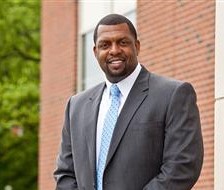
Host, Dr. Catherine Cerulli, a professor of Psychiatry at the University of Rochester, is joined by her guest, Dr. Shaun Nelms, to talk about how schools can build resiliency in youth and grow partnerships with families and community-based agencies. By meeting the youth’s basic needs, we can improve health, prevent child abuse and neglect, and break intergenerational trajectories of poverty and violence. Dr. Nelms is the superintendent of East Upper and Lower Schools, a unique partnership between the New York State Education Department, Rochester City School District, and University of Rochester, where he is charged with creating a replicable school reform model that can transform the way we think about schools as centers for public health promotion.
Dr. Shaun Nelms
Superintendent, East High School, Rochester City School District
Associate Professor (Clinical) & William & Sheila Konar Director of the Center for Urban Education Success, Warner School of Education, University of Rochester
Responding to Childhood Abuse and Neglect: What’s Race Got To Do With It?
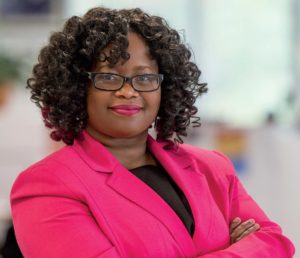
This podcast will focus on the role of race in child welfare, reporting, investigating, and responding. Host, Dr. Catherine Cerulli, a professor of Psychiatry at the University of Rochester, is joined by guest, Dr. Natalie A. Cort to explore the intersection and complex relationship between race and the crisis of child abuse and neglect. Dr. Cort is a Clinical Psychologist who educates future mental health clinicians and seeks to end implicit biases sometimes held by social service providers and clinicians.
Dr. Natalie Cort
Assistant Professor, Clinical Psychology Department
Co-Director, Center for Multicultural & Global Mental Health
Director, African & Caribbean Mental Health Concentration
Director, Black Mental Health Graduate Academy
Associate Director, HRSA Specialized Training & Academic Retention Fellowship
William James College
Creating Resiliency
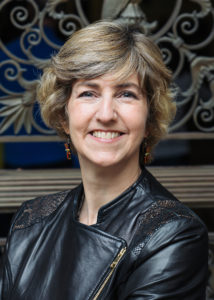
This podcast will inform us on how to support childrens’ resiliency in the face of COVID-19 to prevent future child abuse and neglect. Host, Dr. Catherine Cerulli, a professor of Psychiatry at the University of Rochester, is joined by guest, Dr. Jody Manly, an internationally recognized researcher and clinician at the Mt. Hope Family Center, in Rochester, New York, who examines developmentally appropriate interventions to reduce the harmful effects of child abuse and neglect.
Dr. Jody Manly
Clinical Director
Senior Research Associate
Assistant Professor
Mt. Hope Family Center, University of Rochester
Join Our Contact List!
Stay Connected- get newsletters, resources, and information about the TRANSFORM Research Center.

